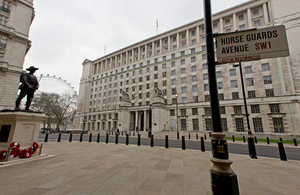Ionburst: safe and anonymous data in the cloud
An Edinburgh company has launched a data security business which could seriously disrupt how digital information is kept safe yet accessible in the cloud.
Over 8 billion data records were compromised last year, according to Cyborn Limited and one in three people have had their privacy exposed by breaches of personal data they trusted organisations to protect.
Ionburst, developed by Cyborn with support from Innovate UK, dissolves data of any type into a stream of anonymous particles. These particles are distributed across multiple cloud stores, improving data security, privacy and recoverability.
No data is ever duplicated, giving immediate carbon and cost benefits. Particles are completely contextless, worthless to hackers but recoverable by legitimate owners immediately, at any time. Cyborn says it is the first technology to give organisations customised control over how to protect sensitive and customer data.
Ionburst is capable of protecting cloud, network, IoT or personal data, across markets as varied as healthcare, defence and online enterprise.
For high-security applications, Ionburst’s ‘active data defence’ constantly moves data and code, thwarting the most determined hackers.
The company received £153,000 of funding from an Innovate UK Smart Grant for a nine-month project which saw the team convert its design blueprint into a software-as-a-service (SaaS) solution.
The project finished in August 2019, and Ionburst is now being used commercially by its first customers on Amazon Web Services.
CEO and founder David Lanc, who was instrumental in the UK’s Chip and PIN roll-out while an executive director at RBS, set up Cyborn in 2018.
A US subsidiary and management team are based in Michigan, and a partnership based in Australia, but Dr Lanc credits Innovate UK support for persuading him to remain in Britain. He expects to add some 30 jobs in the UK over five years.
Dr Lanc said: “Strong US market interest justified us commercialising and distributing Ionburst through a US company and management. Thanks to the project, we can deliver Ionburst to American market specification, managing it from the UK.”
“The grant from Innovate UK was massive for us. If we hadn’t won the award we’d be based in the US by now. It absolutely kept the business in this country.”
Ionburst’s appeal is its ability to turn data and code into “a constantly moving target”.
“Our only problem is that people say it’s too good to be true – but we proved that it works.”
